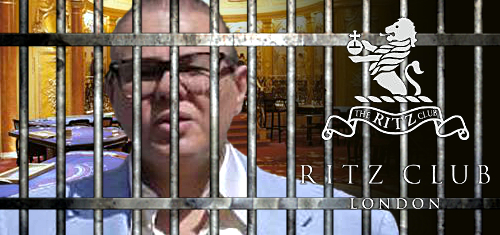 A high-rolling gambler who failed to honor a £2.2m casino debt was sentenced to 10 months in jail on Thursday.
A high-rolling gambler who failed to honor a £2.2m casino debt was sentenced to 10 months in jail on Thursday.
Safa Abdulla Al Geabury, a Swiss-based businessman, was convicted last July of failing to pay a £2m marker he’d rung up at the members-only Ritz Club Casino in London during a frenzied night of roulette play in February 2014.
Al Geabury (pictured) had refused to honor his debt based on his claim that Ritz staff had improperly enticed him into returning to their casino despite his having signed a self-exclusion form. But the UK’s High Court found Al Geabury an “intemperate witness” whose personal worth of £1b could easily take the hit and thus the gambler was ordered to pay the casino the full amount plus interest.
On Thursday, Mr. Justice Spencer found Al Geabury in contempt of court for having “deliberately chose to do nothing to comply” with Spencer’s order to make with the money. However, Spencer said Al Geabury could reduce his 10-month sentence to six months if the Swiss scofflaw “promptly” complies with Spencer’s original order to pay up.
Al Geabury, who claimed he was too poor to fly in from Switzerland to attend the hearing, also claimed that he had no means with which to pay the marker. In a statement to the court, Al Geabury said his previous claims of owning $1b worth of Islamic art were mistaken, and that the art was in fact owned by his uncle, from whom Al Geabury had wrongly expected to inherit the collection.
Al Geabury made a plea for sympathy, claiming to be suffering from depression, anxiety and sleep deprivation, for which he was taking “numerous” pharmacological products. Al Geabury also claimed that he would be homeless without the generosity of a Swiss friend, with whom Al Geabury claimed to be living. Al Geabury had offered to come to London for questioning on his assets, but only if the Ritz foot the bill for his flights and accommodation.
An unimpressed Spencer refused to dismiss Thursday’s hearing, saying Al Geabury could have easily afforded to attend if he truly wanted to do so. Spencer noted that there was “evidence of enormous capital wealth” at the gambler’s disposal, including a home in London’s Grosvenor Square.
